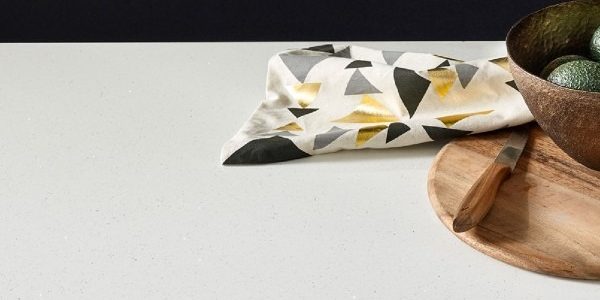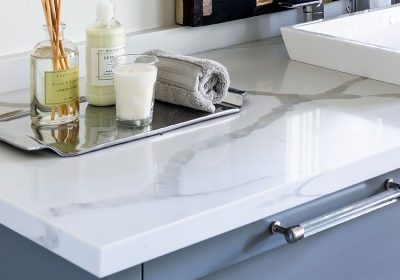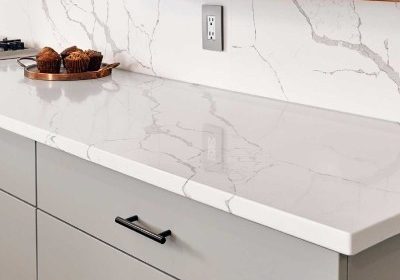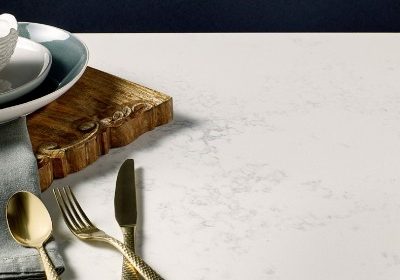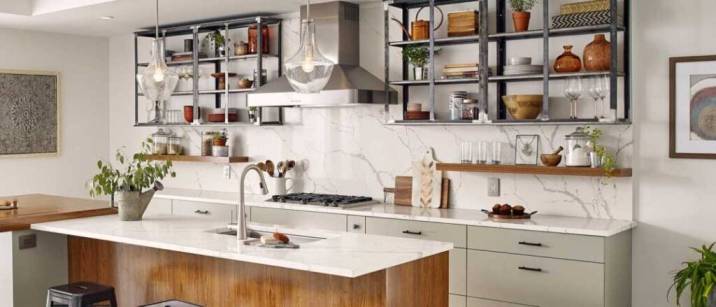Kitchen Countertops
Premium Collections Of Countertops
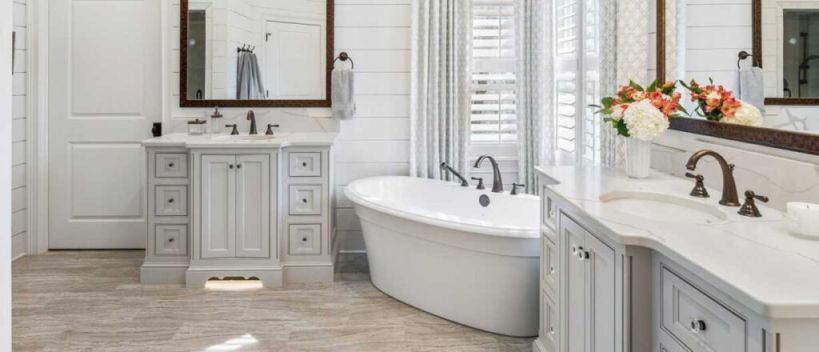
Many homeowners face issues with where to perform cooking-related tasks in the kitchen. If you perform cooking-related chores like work on cutting boards, and chopping vegetables, etc in other places of the kitchen, that would not be comfortable and impact the overall cooking. Furthermore, your kitchen utensil would not be organized, and your kitchen beauty can be impacted because many things will look scattered.
Meet Our Professionals For Free Estimate
Get questions, want to know pricing, or need an estimate? Fill the form here and we will contact you shortly. Or call us now at +1 (847) 466-5516 No Obligation and No Pressure. Guaranteed!
Or Call
What is a Kitchen Countertop?
A kitchen countertop, often the centerpiece of a kitchen, is a horizontal work surface where daily culinary activities come to life. It’s not just about aesthetics; it’s where meals are prepared, families gather, and memories are made. Countertops must be durable enough to handle the wear and tear of everyday cooking while complementing the kitchen’s overall design.
What is The Purpose of a Kitchen Countertop?
The purpose of a kitchen countertop is multifaceted, serving as a critical component in a kitchen’s functionality and aesthetics. It provides a durable and stable surface for food preparation, cooking activities, and placement of kitchen appliances. Beyond its practical applications, the countertop is also a key element of the kitchen’s visual appeal, offering an opportunity to showcase material choices that reflect the homeowner’s style and the home’s design ethos. It is often a central gathering spot for family and friends, making it integral to the kitchen’s overall atmosphere and experience. Whether made from granite, marble, laminate, or engineered stone, the kitchen countertop accommodates the hustle and bustle of everyday tasks while enhancing the room’s overall look and feel.
Why are Countertops Important in The Kitchen?
Countertops play a critical role in the kitchen for several reasons. They influence the kitchen’s workflow, impact the space’s overall visual appeal, and contribute to the functionality of one of the most used rooms in the home. High-quality countertops can also boost the property’s value, making them a significant investment.
A recent report by Fortune Business Insights projects that the global countertop market is poised for substantial growth, reaching USD 167.66 billion by 2030 from USD 123.10 billion in 2022. This remarkable growth is attributed to the indispensable role of countertops in various settings, including kitchens, laboratories, retail stores, bathrooms, and workrooms. These multipurpose platforms provide valuable support for cabinets and other fixtures, ensuring both functionality and aesthetics.
In line with this trend, another report by QYResearch Group estimates that the global kitchen countertop market is valued at US$ 14.6 billion in 2021 and is expected to reach US$ 20.5 billion by 2028, representing a CAGR of 4.69%. This projected growth highlights the market’s attractiveness for investors, promising lucrative opportunities in the years to come.
What is The Difference Between a Countertop and a Worktop?
The terms “countertop” and “worktop” are often used interchangeably to describe the flat surface in kitchens upon which we work. The difference is largely regional, with “countertop” commonly used in North America and “worktop” favored in the UK. Both serve the same essential functions in the kitchen.
What are Kitchen Countertops Used for?
Kitchen countertops are used for a range of activities: preparing food, serving meals, as a place for appliances, and sometimes even as an informal dining area. Their surface must resist heat, scratches, and stains, proving their worth as both practical and aesthetic elements of the kitchen.
What are the important Features of Kitchen Countertops?
Functional, aesthetic, symbolic, and unique are important features when considering kitchen countertops:
What are The unique Features of Kitchen Countertops?
- Enduring Companion: A well-chosen countertop is an enduring companion in the kitchen, reliable through years of use.
- Heatproof Protector: Quality countertops act as a protector against heat, allowing hot items to be placed on them without damage.
- Stain-Resistant Ally: Modern countertops come with stain-resistant properties, making spills and messes a minor inconvenience.
- Scrape-Proof Shield: High-end materials offer a scrape-proof shield against utensils and general kitchen wear and tear.
- Culinary Crossroads: Countertops are the crossroads of culinary activity, a central point where cooking paths converge.
- Cherished Heirloom: With lasting durability, a countertop can become a cherished heirloom, part of the family’s story.
- Kitchen Chronicler: Through the years, a kitchen countertop chronicles the story of a home, bearing witness to shared meals and celebrations.
What are The Functional Features of Kitchen Countertops?
- Practical Workhorse: The countertop is the kitchen’s workhorse, offering a sturdy and reliable space for all cooking and preparation tasks.
- Durable and Reliable: Countertops must be durable to withstand the rigors of daily use, from hot pots and pans to knife scratches.
- Easy to Maintain: The best kitchen countertops are those that require minimal maintenance, proving easy to clean and resistant to bacteria growth.
- Safe and Secure: A non-porous and smooth surface ensures countertops are safe for food prep and resistant to harboring harmful bacteria.
What are The Aesthetic Features of Kitchen Countertops?
- Versatile Canvas: Countertops offer a versatile canvas for kitchen aesthetics, capable of adapting to any style, from classic to contemporary.
- Polished Finish: A polished finish not only enhances the stone’s natural beauty but also contributes to ease of cleaning and maintenance.
- Color Coordination: The color of a countertop can be coordinated with kitchen cabinetry and flooring, contributing to a cohesive design scheme.
- Natural Elegance: Materials like marble and granite bring natural elegance to a kitchen, each piece unique with its own pattern and texture.
- Customizable Charm: Countertops can be customized in various shapes, edges, and finishes to match personal style and kitchen design.
What is The Symbolic Importance of Kitchen Countertops?
- Culinary Creativity Hub: Countertops serve as a hub for culinary creativity, where ingredients come together to create meals.
- Family Gathering Center: The kitchen counter often becomes a gathering center for family and friends, making it a space of togetherness and conversation.
- Heart of the Home: As the heart of the home, the kitchen and its countertops are central to the daily life and rhythm of a household.
- Sustainable Choice: Choosing eco-friendly countertop materials reflects a commitment to sustainability and environmentally conscious living.
What are The Types of Kitchen Countertops?
One of the most crucial decisions is choosing the right countertop material When renovating a kitchen. Each option presents a unique set of benefits and aesthetics, catering to various preferences and functional needs.
1. Quartz Countertops
Quartz, a robust natural mineral, forms the foundation of quartz countertops, which are typically composed of 90-96% quartz combined with 6-10% polymer resins and pigments. This composition bestows the countertops with a hardness comparable to granite, ranking them a solid 7 on the Mohs Scale of Hardness. This indicates their resilience against cracks and ability to endure substantial weight.
In addition to their strength, quartz countertops are celebrated for their resistance to staining. Their non-porous nature means that bacteria and other potentially damaging substances can’t penetrate the surface, contributing to the countertop’s longevity and hygienic qualities. However, despite quartz’s heat resistance, the presence of polymers and pigments within the material does render it vulnerable to heat damage, potentially leading to discoloration, such as white spots, when exposed to high temperatures.
One of the aesthetic advantages of quartz countertops lies in their diverse color and pattern offerings, thanks to the pigments used in their creation. This variety allows for a high degree of customization, ensuring that homeowners can find an option that seamlessly fits their kitchen’s design scheme. While quartz countertops are generally more expensive than many standard countertop materials, it’s important to note that natural stone surfaces typically come with a higher price tag, reflecting their quality and durability.
2. Granite Countertops
Granite countertops have long been favored by homeowners for their perfect blend of beauty and practicality. This natural stone is not only aesthetically pleasing, with its rich textures and varied finishes, but it’s also environmentally friendly. Being 100% recyclable, granite is a sustainable choice for eco-conscious individuals. Although less ubiquitous than quartz or synthetic alternatives, its rarity does not detract from its desirable qualities.
Renowned for their heat resistance, granite countertops won’t succumb to scorch marks or black spots when in contact with hot items, making them a reliable surface for busy kitchens. On the Mohs Scale of Hardness, which measures the scratch resistance of minerals, granite earns a commendable score of 7 out of 10. This hardness translates to impressive durability and scratch resistance, making granite countertops a solid investment for the long haul.
Seams, or the visible lines where two slabs of granite meet, are minimal with larger granite pieces and more apparent in smaller slabs. However, expert installation can minimize their appearance, ensuring a sleek and seamless look.
The cost of granite countertops can vary, largely influenced by the quality and your budget. For those looking to spend less, granite tile countertops present a more affordable alternative without sacrificing the stone’s innate elegance.
Maintenance for granite countertops is relatively straightforward. With professional and regular sealing—typically every one to two years—granite remains resilient. Routine cleaning can be achieved with just a soft cloth and a gentle, non-abrasive cleaner, or simply water.
However, the installation of granite countertops is not a do-it-yourself task. Due to the stone’s weight and the precision required, professional installation is crucial to ensure the countertop is fitted securely and performs to its full potential.
3. Butcher Block Countertops
Butcher block countertops, crafted from straight cuts of wood glued together for strength, exude warmth and natural beauty in a kitchen. They’re perfect for food prep with their durable, easy-to-sand surface that can be resealed to remove scratches. Regular oiling preserves their luster and antibacterial properties. While susceptible to water damage and staining if not maintained, their affordability and ability to be refinished make butcher block countertops a long-lasting, eco-friendly option for those seeking a blend of functionality and rustic charm in their kitchen design.
4. Concrete Countertops
Concrete countertops offer a bespoke, handcrafted touch to any kitchen, with the ability to be custom-formed into unique shapes and tailored styles. To maintain their pristine condition and prevent stains, these countertops require sealing, and for an extra layer of protection and a hint of sheen, a wax finish is a great option. Their modern, industrial aesthetic can easily be personalized with an array of dyes, stains, and inlays, making them a versatile choice for contemporary kitchen designs.
5. Laminate Countertops
Laminate countertops offer an affordable and versatile option for kitchen surfaces, made from a fusion of plastic and paper. Their budget-friendly nature is complemented by the ease of DIY installation, although professional fitting is an option. The need for sealing is bypassed with laminate, saving time and additional costs post-installation.
The manufacturing process allows for a wide selection of designs, making laminate a surprisingly stylish choice, even in upscale kitchens. Despite being cost-effective, they don’t contribute to home resale value as much as stone counterparts like quartz or granite.
A notable disadvantage of laminate is its vulnerability to heat, scratches, and delamination, owing to its foundational materials. Damage can be difficult to repair, often necessitating complete replacement rather than fixing. When it comes to cleaning, gentle care is required; harsh abrasives can easily mar the surface, so a soft cloth and mild soap are recommended for upkeep.
6. Marble Countertops
Marble countertops stand as a testament to timeless elegance, offering a diversity of types and qualities. This natural stone is not just a beacon of luxury but also a smart investment, boosting the resale value of your home.
Each marble slab is distinct, with variations in color and pattern that promise a unique look for your kitchen. While marble’s resilience to heat matches that of granite and quartz, sealing is necessary to ward off stains due to its porosity.
The appearance of marble can change over time, developing a patina that may not be to everyone’s taste. Yet, for those who appreciate a natural aesthetic, this evolution adds character. The cost of marble varies, with options like the affordable Carrara offering a different allure than the more premium Calacatta, each with its distinctive appeal.
7. Formica Countertops
Formica, a term often synonymous with laminate countertops, offers a practical and cost-effective surface solution. These countertops are admired for their resilience, effectively standing up to heat, stains, and scratches, thereby simplifying upkeep. The array of designs Formica presents is vast, spanning a spectrum of colors and patterns with finishes that can mimic the appearance of wood or stone, adding versatility to any kitchen aesthetic.
8. Quartzite Countertops
Quartzite countertops are crafted from a robust metamorphic rock that originates as sandstone and undergoes a transformation under intense heat and pressure. This process imbues the stone with remarkable strength, often surpassing granite in durability. To preserve their natural splendor and shield them from stains, quartzite surfaces necessitate regular sealing, much like other natural stone options. However, this small investment in maintenance rewards homeowners with a long-lasting countertop that boasts elegant veining and soft hues reminiscent of marble yet provides a sturdier, less upkeep-intensive alternative. The allure of quartzite lies in its unique patterns and depth of color, bringing an element of the earth’s artistry to the heart of your home.
9. Soapstone Countertops
Soapstone is a tactilely soft natural stone, rich in talc. Its non-porous nature means it’s impervious to acids and doesn’t require sealing, simplifying maintenance. With time, soapstone naturally darkens, acquiring a distinguished patina that enhances its character and adds a timeless narrative to any kitchen’s aesthetic.
10. Porcelain Countertops
Porcelain countertops are comparably durable, crafted under extreme temperatures of about 2500 degrees Fahrenheit. They are resilient, yet susceptible to chips or cracks from heavy impacts.
A notable aspect of porcelain countertops is their aesthetic design. Unlike naturally patterned stones, porcelain’s decorative patterns are only surface-deep. This means chips may reveal a patternless interior, and the edges might not display the chosen design continuity.
In terms of design flexibility, porcelain offers a wide array of colors and styles to suit diverse preferences, making it easier to find a suitable match for your kitchen.
These countertops boast an impressive list of attributes: they’re non-porous, resistant to stains, scratches, UV light, and heat, and are fully recyclable. However, it’s important to check whether sealing is needed, as this varies between products.
When it comes to maintenance, although porcelain is scratch-resistant, it’s advisable to avoid using ceramic knives directly on the surface as they can cause scratches. Employing a cutting board is a practical solution to preserve the countertop’s integrity.
The availability of porcelain countertops can be limited due to their lesser popularity, making it challenging to find skilled fabricators. Consequently, the price can fluctuate significantly, sometimes being more affordable than quartz and granite, or conversely, more expensive.
11. Solid Surface Countertops
Solid surface countertops merge acrylic or polyester resins with pigments and fillers to create a non-porous, seamless counter. They stand out for their reparability and custom shape potential, providing a uniformly smooth texture throughout.
Solid surface countertops present an appealing option if you’re seeking a cost-effective alternative to natural stone countertops. Crafted from a mix of alumina trihydrate (ATH), resin polyester and acrylic, and pigments, these countertops offer a stone-like appearance with a variety of choices. A notable feature of solid surface countertops is their uniform composition; the chosen color or pattern is consistent throughout the material, ensuring a cohesive look.
Recognized for their non-porous nature, solid surface countertops are a staple in medical settings like hospitals, where hygiene is paramount. This quality makes them an excellent home choice, particularly for individuals with compromised immune systems. Natural stones do not require sealing, and their upkeep is straightforward.
While solid surface countertops may lack scratch resistance, they redeem themselves with ease of repair. Minor scratches can be effortlessly smoothed out with fine sandpaper, making it a DIY-friendly task. However, these countertops are not designed to withstand high temperatures, so caution should be exercised with hot items.
For those comfortable with home improvement projects, installing solid surface countertops is more manageable than natural stones like quartz or granite, although still challenging. Positioned as a mid-range option, they offer homeowners the elegance of natural stone at a more budget-friendly price point.
12. Wood Countertops
Wood countertops bring the organic warmth of natural woods like maple, oak, or walnut into the kitchen. Requiring periodic oiling to sustain their luster, these surfaces can be rejuvenated through sanding and refinishing, offering a timeless appeal.
13. Stainless Steel Countertops
Favored in professional kitchens, stainless steel countertops offer a non-porous, hygienic surface. While they’re a cinch to sanitize and resistant to heat and rust, they can show fingerprints and scratches over time but remain enduringly durable.
14. Dekton Countertops
Dekton presents a cutting-edge blend of materials used in glass, porcelain, and quartz, yielding an ultra-compact surface. It stands up impressively to heat, scratches, and UV light, and its innovative color and finish options suit a broad range of design needs.
15. Tile Countertops
Tile countertops are composed of individual ceramic, porcelain, or stone tiles laid over mortar. While the tiles themselves are durable and easy to clean, the grout may require more attention to prevent staining and maintain a pristine appearance.
16. Corian Countertops
Corian countertops, a synthesized blend of minerals like quartz, granite, and plastic resins, stand out as a modern alternative to traditional countertop materials. Developed by DuPont, Corian’s unique composition requires installation by certified professionals, ensuring quality and adherence to standards.
With an extensive palette of over 100 colors, Corian offers remarkable versatility to match any kitchen décor. Its malleable nature, unlike the rigidity of granite or quartz, allows for customization to fit various kitchen layouts seamlessly.
As a non-porous material, Corian countertops offer a hygienic surface, resistant to bacterial growth. They share a similar cleaning protocol with quartz, favoring gentle, non-abrasive cleaners. However, Corian’s heat tolerance is limited to 212°F (100°C), making it less heat-resistant compared to granite or quartz.
In terms of stain resistance, Corian excels, allowing even stubborn stains to be wiped away easily. While it’s durable, it isn’t impervious to scratches. Fortunately, any scratches that do occur can be effortlessly repaired, making Corian a practical and low-maintenance choice for busy kitchens.
FAQ About Kitchen Countertops
The best budget-friendly kitchen countertop is laminate, a mix of paper and plastic transformed into a solid surface.
Laminate countertops are very easy to maintain after installation. They do not require further care and need only daily cleaning with soapy water.
Quartz and Granite come on top in terms of stain resistance because of being natural stones. However, quartz is more stain resistant than granite.
The most durable kitchen countertop material is typically considered to be granite. Granite is a natural stone known for its hardness and resistance to scratches, heat, and wear. It ranks highly on the Mohs scale of mineral hardness, which is a measure of scratch resistance. This makes it an excellent choice for kitchens where durability is a priority.
Granite has been the most popular choice for a long time. Also, in terms of quality and overall performance, it is one of the best countertop types.
Granite countertops are one of the most heat-resistant countertops you can find. Granite is a natural stone that requires extreme heat to form. So, you don’t need to worry about spots when you put hot pans onto your granite countertop.


